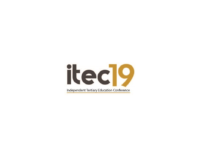Last week’s Surfers Paradise conference of the Independent Tertiary Education Council Australia (ITECA, the former ACPET) highlighted some of the big questions facing Australian post-secondary education.
Kate Carnell AO, Australian Small Business and Family Enterprise Ombudsman, gave the opening keynote address. Noting that she was a pharmacist by trade and small businessperson, she expressed criticism of the Australian Skills Quality Authority (ASQA), saying “More regulation doesn’t make it better.” She called for a consistent approach to audit processes for all RTOs, more engagement and guidance from ASQA about audit processes (especially small providers), simplified and plan English audit standards, and publication of de-identified completed audits to better educate providers and increase transparency.
Mark Paterson AO, ASQA’s Chief Commissioner, spoke on the topic “Why minimum standards don’t equate to equality.” He gave a strong and often convincing rebuttal to recent criticisms of ASQA (read CCA’s summary here). He noted that more than 500 RTOs each year deliver no training at all, and a massive 30% seek to change their scope within a year of initial registration, particularly to add child care qualifications. “RTOs are just sitting on the shelf,” he said. ASQA has “raised the bar” for new RTO registrations, and no-one has complained about that.
A unique presentation came from Tim Dodd, Higher Education Editor of The Australian. He spoke of a “loss of faith” in higher education institutions, especially in the USA, which is an “increasing sentiment in Australia.” He talked about the need for a “seamless transition between VET and university”, noting that universities were increasingly undertaking VET-style activities: internships and work-integrated learning programs. Unfortunately, it was very difficult for students to navigate the post-secondary education system. He also said that smaller, independent higher education providers such as Bond University and Notre Dame do very well in student surveys, and that smaller institutions can often react more quickly to technological changes.
Professor Nick Saunders, Chair of Tertiary Education Quality & Standards Agency (TEQSA) – and a former Vice Chancellor at University of Newcastle – talked about higher education and small independent providers. The median size of independent providers was quite small: only about 255 equivalent full-time students, with a massive 30% of providers having less than 100 students. The smallest independent providers tend to be not-for-profit institutions; they generally had very few issues identified with TEQSA, as they appear to provide high student support, although the “boutique” providers are classified as higher financial risk.
Matthew Dale from Audit Express spoke about micro-learning and micro-credentials, which is a clear direction that governments are likely to accept and endorse.
Dr Don Perlgut represented CCA at the conference, presenting a paper on CCA’s conclusions and recommendations for Western Sydney vocational education and training (VET) of CCA’s recently completed study on community education providers and economic development in that region. (View the presentation slides here and read part of the talk here.)





